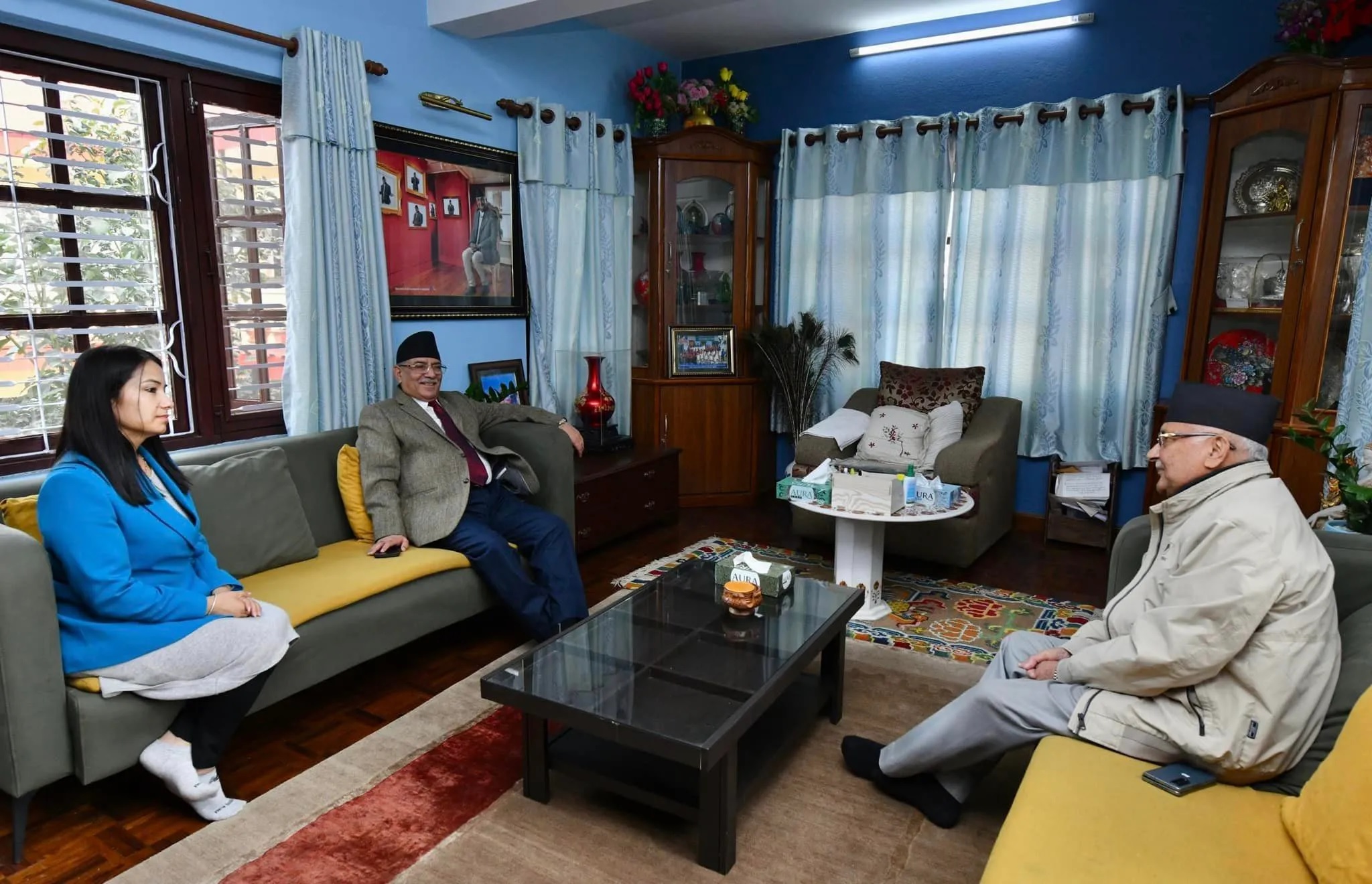The approaching National Assembly (NA) elections slated for January 25 have stirred underlying tensions within the ruling coalition. There’s a discernible unease among the major players—Nepali Congress and the CPN-Maoist Center—hinting at potential discord among smaller factions.
The UML is determined to wield its influence, eyeing potential wins amidst inter-party opposition. However, uncertainties loom regarding potential disruptions and fragmentations within the ruling alliance during the NA elections. Despite public speculation, leaders from both sides are yet to explicitly voice their intentions.
The upcoming election for 19 NA seats on January 25 holds promise for the ruling alliance. However, recent circumstances suggest a potential shift in NA’s political landscape due to internal coalition friction encompassing 20 seats.
The UML aims to capitalize on perceived discord between the NC and the Maoist Center, attempting to leverage this situation. Recent developments between Prime Minister Pushpa Kamal Dahal ‘Prachanda’ and CPN-UML Chair KP Oli signal a rift, primarily revolving around the NA elections.
Prime Minister Dahal, accompanied by NC President Sher Bahadur Deuba, Vice-President Purna Bahadur Khadka, General Secretary Gagan Kumar Thapa, and Chief Whip Ramesh Lekhak, held discussions on the NA elections earlier this Tuesday. Initial deliberations took place during the Saturday meeting between Deuba and Prime Minister Dahal, where differences surfaced regarding the decision to suspend the police official in the Balkumari case in Lalitpur.
Notably, further discussions occurred Tuesday evening at Baluwatar between Prime Minister Dahal, NC President Deuba, and UML Chair Oli. Subsequently, the trio engaged in talks at the Prime Minister’s Office from 4 PM, with Oli joining the meeting later.
Sources suggest that UML Chair Oli hinted at collaborating with the Maoist Center and the ruling coalition on long-pending issues, like consensus on transitional justice, provided the latter agreed to share seats in the forthcoming NA election. Oli’s proposal faced disagreement from NC President Deuba, who refrained from an immediate response. However, Prime Minister Dahal indicated the potential for further discussions.
Candidate registration for the National Assembly is scheduled for January 8. However, uncertainties persist regarding seat allocation and alliance fragmentation.
In anticipation of potential disruptions within the ruling coalition, Nepali Congress leaders express determination to stave off any anticipated defeat in the NA elections. A senior NC leader affirmed, “We’re gearing up from all angles, whether it’s progress or retreat. It’s about reshaping the government’s trajectory.”
With the Maoist Center, under Prime Minister Dahal’s leadership, holding 32 seats, NC leading with 89 seats, Janata Samajwadi Party with 12 seats, Unified Socialist Party Nepal with 10 seats, and seven smaller parties, form the ruling government.
The opposition party UML holds 77 seats. Following the demise of its elected member Subhas Chandra Nembang from Ilam-2, it maintains a functional strength of 77 seats.
Prime Minister Dahal aims to seek renewed consensus to consolidate power, initiating discussions on all fronts. A senior Maoist Center leader stated, “Not only forming a government through consensus but also aligning in the National Assembly elections is crucial. Engaging opposition parties sends a positive message.”
Within the Maoist Center, Secretary Dev Gurung stresses that failure to form a consensus government would result in significant national setbacks, indicating their pursuit of a consensus government.
As per the alliance agreement, Prime Minister Dahal has a year left to lead the government. However, political analyst Indra Adhikari suggests the possibility of the alliance crumbling before that tenure.
Adhikari asserts, “None currently holds a majority in the coalition government. The only plausible route seems to realign with the UML. Structural changes might be out of reach.”
Potential alliance disintegration
The UML refutes rumors of an imminent coalition shift, questioning the term ‘coalition breakup’ and its implications.
While direct discussions within the UML about breaking the alliance may not have occurred, Deputy General Secretary Bishnu Rimal suggests negotiations might have transpired through other channels. He remarked, “While there have been no discussions on forming ruling, issues are discussed from various angles. Our preparations are in full swing across all fronts.”









Comment